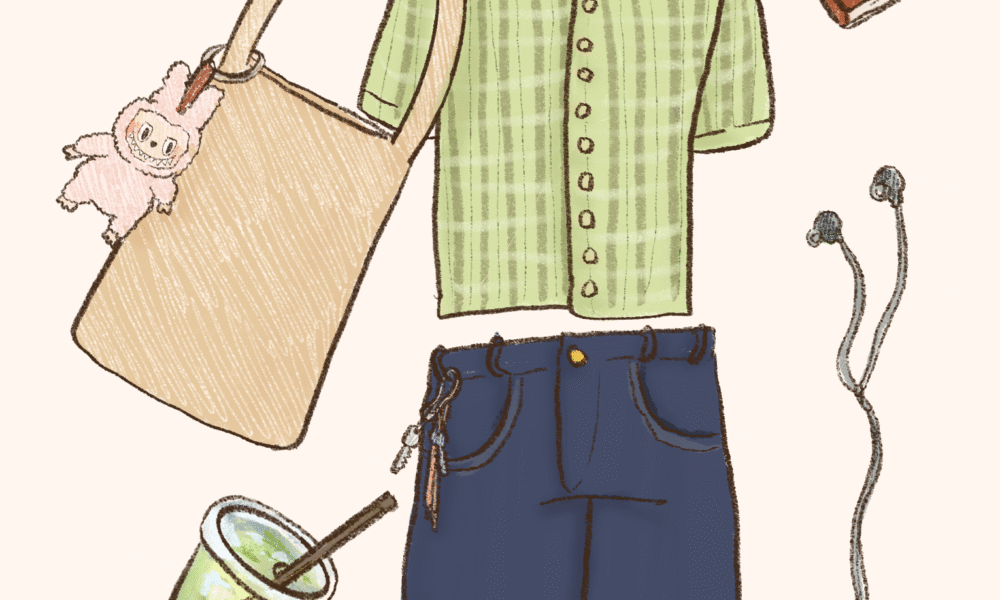“History repeats itself, first as tragedy, then as farce.” Thus wrote Marx in The Eighteenth Brumaire of Louis Bonaparte. Aligning itself with a long legacy of alternative male archetypes, the performative male exists in conversation with the Metrosexual, Soyboy, Nice GuyTM and Male Manipulator—each a cultural attempt to grapple with what it means to be a man in an era of progressive politics, where prized self-awareness is rewarded as social capital.
What makes the performative male distinctive as a phenomenon is its self-conscious, nonthreatening nature. Originating in feminist criticism of men who appropriate aesthetics of political sensitivity for women’s validation, the label has since been embraced, blurred and reinterpreted as a kind of satire—part parody, part reclamation, culminating in a cultural onslaught of competitions to see who can most embody the archetype.
This spirit materialized on Sept. 26, when Sam Rudin, U2 Arts, in collaboration with Spotted McGill, hosted McGill’s first Performative Male Contest on campus, just hours after the university’s annual Lettuce Club competition. Among the wilted green remains of the Lower Field, competitors advanced through rounds of runway, dance-offs, and mock interview questions in a bracket format by ‘cheer-meter’—scaled to the music of audience uproar and applause.
Recounting the organizational process, Rudin admits that he hadn’t initially planned to organize anything at all. He initially floated the idea of a performative male competition in a Spotted McGill confession—more of a suggestion than an intention, but when it garnered traction online, it became clear that what started out as a passing joke among his friends had become a serendipitous call to action. “At some point, I realized if I don’t do it, no one will,” he said in an interview with The Tribune
For Rudin, the competition was not so much a matter of political statement as it was an inclusive community-bonding exercise. When asked about the role of gender in this phenomenon, he told The Tribune, “Someone commented on the post asking if girls were allowed to perform and another person replied, ‘performative male is a mindset.’ Anyone can be a performative male.”
Runner-up Anthanasios Wees, U1 Arts, echoed this sentiment, emphasizing in an interview with The Tribune that “gender and sexuality have no place as a discriminatory feature.” Wees highlighted that it’s the intent that defines a performative man, not the semantics of how ‘he’ acts.
“It’s about the intention of illusion, pretending to be a safe space for women to gain an advantage in social circles opens you up to rightful criticism […] that’s when you start entering the world of being a performative male.”
Shahzaib Sultan, local social media influencer, winner of the Montreal performative male contest, and self-identifying performative male, believes the city’s cultural landscape is particularly conducive to self expression. Between the fashion-forward Plateau, and Mile End’s melting pot of subcultures, Montreal naturally fosters performative expression where the line between personal style and deliberate performance often blends sincerity with self-aware Gen-Z irony.
Though ultimately victorious, Sultan found himself at odds with the contest’s expectations, and at times, considered quitting. “Being queer in the contest, I questioned my place in that too,” he said. Navigating a space where crowds caricaturize the forms of self-expression he feels natural in, Sultan noted the environment’s inherent hostility in an interview with The Tribune: “It’s not authentic—straight men have appropriated queer culture in many ways and this is just one of them. We applaud men for being performative.”
Despite the underlying tension, Sultan embraced the experience, choosing to reclaim the space on his own terms. The contest, built on exaggerated heteronormative clowning, prompted him to consider how his identity fit within the broader digital landscape. Getting ready for the contest felt ordinary—another familiar morning routine. In an ironic twist, it was perhaps the most genuine participant who triumphed in a contest defined by performative masculinity, revealing heart beneath a seemingly cynical spectacle.
“I think the performative male trend has done a lot of good. People base their identity in significantly more ridiculous things than being a performative man. Good for them, it’s hard to figure out what we are,” said Wees.









